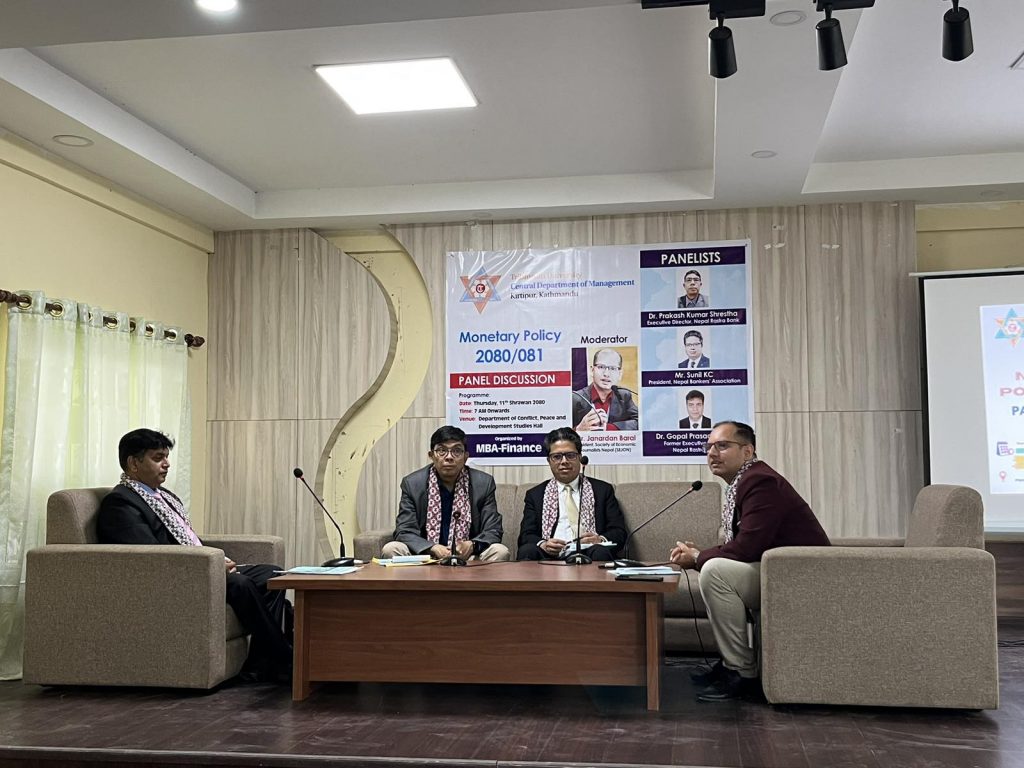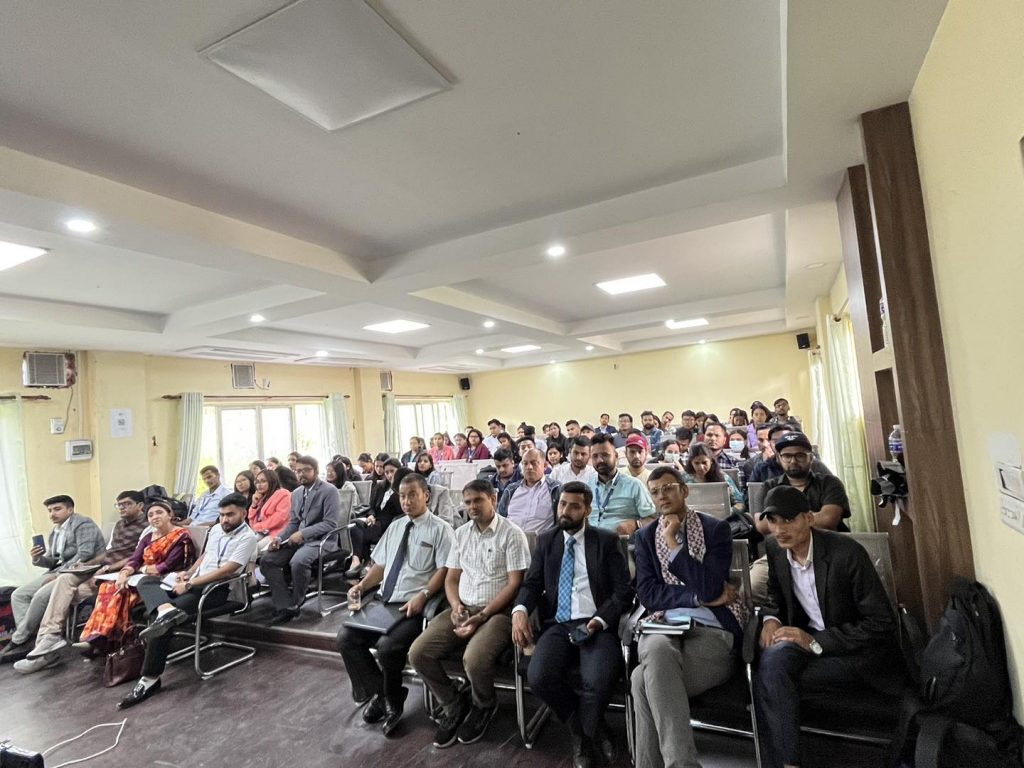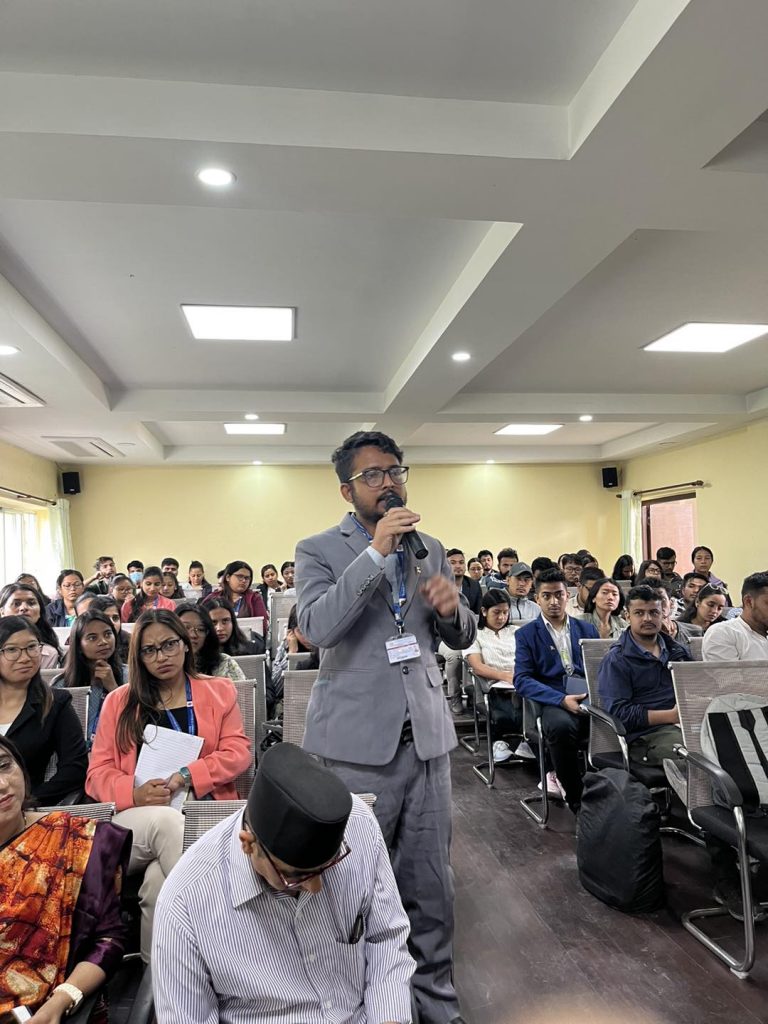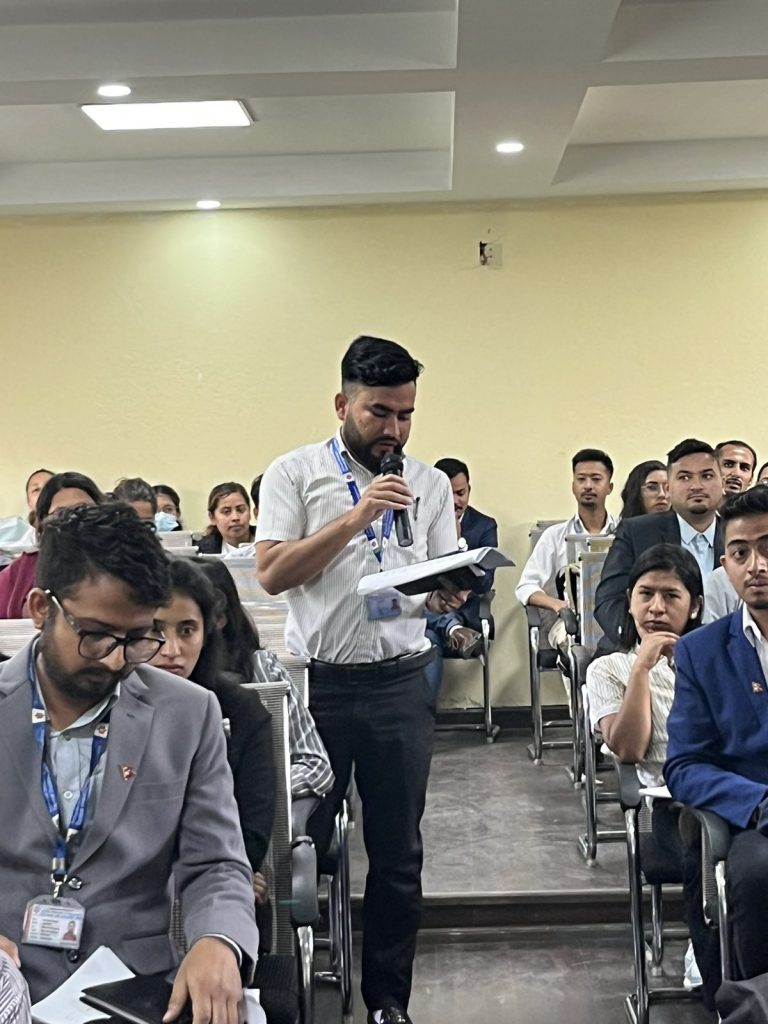- Tribhuvan University, Kirtipur
- 977-1-4330-847
- info@fomcdmtu.edu.np




CDM, TU Kirtipur
In a thought-provoking panel discussion held at Tribhuvan University, esteemed policymakers, bankers, and financial experts presented their experience and insights about recently released monetary policy (2080/81) and its impact on the Nepalese economy. The event was organized by MBA-Finance of the Central Department of Management Tribhuvan University who drew a diverse audience of professors, teachers and students who were eager to gain insights into the workings of this vital economic tool.
The panelists include Dr. Prakash Kumar Shrestha, Executive Director, Economic Research Department, Nepal Rastra Bank (NRB) who provided his thoughts from the perspective of policymakers. Similarly, Mr. Sunil KC, President of the Nepal Bankers Association (NBA) gave his remarks from the Banker’s perspective on recently released monetary policy. Another panelist, Dr. Gopal Prasad Bhatta, former Executive Director of NRB and Financial Market Expert put his thought on how monetary policy affects the financial markets of Nepal. Mr. Janardan Baral, president of the Society of Economics Journalists Nepal (SEJON), moderated the entire discussion.
The panellists, representing a spectrum of expertise, engaged in a lively exchange of ideas, shedding light on the complexities and challenges faced by central banks in steering the course of the nation’s economic growth. They emphasised that understanding monetary policy is paramount for citizens and students alike, as it affects everything from interest rates and inflation to investment decisions and job creation.
Moderator Mr. Janardan Baral started the discussion by briefly explaining about the budget and how it is supported by monetary policy. One of the key points of the discussion was how the policy rates, overnight financing rate and bank rate affect the overall interest rate and why NRB is cautious about setting thoses rates. Dr. Prakash Kumar Shrestha expressed his concern about increasing inflation, credit growth and declining the economic growth. Panelists appreciated NRB’s actions for external sector balancing.
On the other hand, Mr. Sunil KC asserted that following conservative approach, restricting credit growth, could hamper economic growth. Although credit growth was consistently high it is realy very difficult to achieve the high economic growth that has been proposed by monetary policy. Likewise, Dr. Gopal Prasad Bhatta has argued that the new monetary policy has highly focused on the economy of the country rather than investors in stock markets although the recent monetary policy has had an impact on the stock market.
As the session neared its conclusion, the experts turned their attention to the Question and Answers of the audiences. They discussed the potential challenges that central banks might face in adapting their strategies to rapidly evolving economic landscapes, including the rise of digital currencies.
Closing the session, Dr. Bharat Singh Thapa, Director of MBA Finance program highlighted the importance of such program for management students. Prof. Dr. Pushpa Raj Sharma gave vote of thanks and presented token of appreciation to pannelist and moderator. The audience left the event with a deeper understanding of the complexities of monetary policy and its critical role in shaping the nation’s economic trajectory. The panel discussion served as a reminder of importance of cooperation among policymakers, business practitioners, academicians and experts. Ms. Rajani Shrestha was emcee of the program and Mr. Sushil Lamichhane delivered welcome speech. Professors, students and alumni of central department of management participated in the program.
News written by
Sambhav Lakhe (MBA Finance, I Aspire)